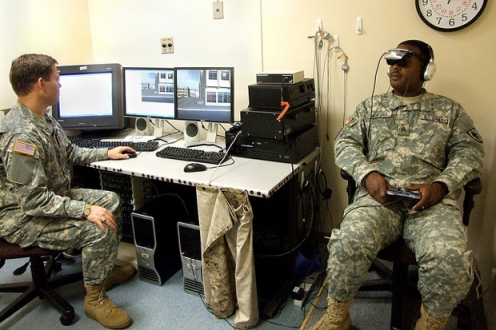Beyond gaming: virtual reality in healthcare
27 Mar, 14 | by BMJ
Following the high profile purchase of Whatsapp, Facebook has made yet another acquisition. The company behind the Oculus Rift virtual reality headset, which found success on Kickstarter (and has since been the darling of the indie tech scene) was bought for $2bn this week.
Although gaming is a cornerstone of Facebook’s business, Mark Zuckerburg’s statement shows that he has further reaching ambitions for virtual reality (VR):
“Imagine enjoying a court side seat at a game, studying in a classroom of students and teachers all over the world or consulting with a doctor face-to-face — just by putting on goggles in your home.…This is really a new communication platform.”
In fact, healthcare is already a big adopter of virtual reality, with applications already in surgery simulation, phobia treatment, robotic surgery and skills training.

